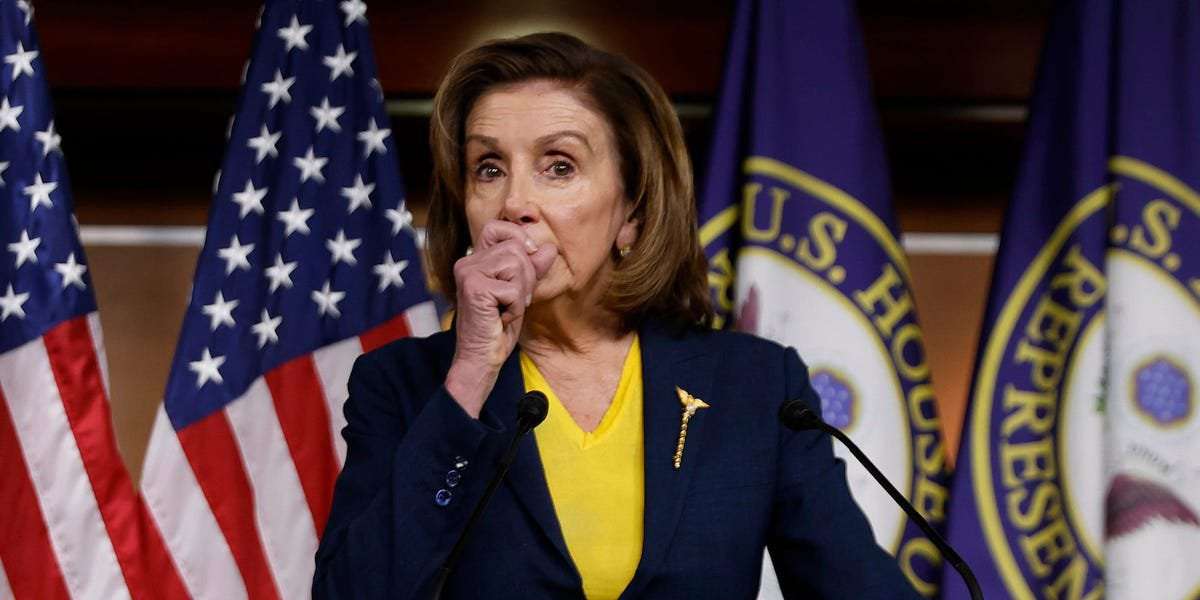A conservative group's poll found that the vast majority of Americans oppose congresional stock-trading.
76% of Americans believe members of Congress have an "unfair advantage" when it comes to stocks.
Pelosi recently defended the practice, saying that "we are a free-market economy."
Get a daily selection of our top stories based on your reading preferences. Loading Something is loading. Email address By clicking ‘Sign up’, you agree to receive marketing emails from Insider as well as other partner offers and accept our Terms of Service and Privacy Policy
An overwhelming majority of Americans believe that members of Congress shouldn't be allowed to trade stocks while in office, according to a new poll first reported by The Hill.
According to the poll, conducted by the conservative group Convention of States Action, 76% of voters believe that lawmakers and their spouses should not be allowed to trade stocks while serving in Congress, and that they have an "unfair advantage" in the stock market.
Just 5% of voters approved of the practice, while another 19% offered no opinion.
The poll also found that disapproval of congressional stock-trading is overwhelmingly bipartisan; 70% of Democrats, 78% of Republicans, and nearly 80% of independents said members of Congress shouldn't be able to trade stocks.
"In an era of hyper-partisanship, voters in all parties agree that members of Congress should not be enriching themselves using 'insider information' while serving the people," said the group's president, Mark Meckler, in a statement. "This issue has received a lot of attention, and this data verifies the American people want this practice to end once and for all."
The poll, conducted by the Trafalgar Group, included 1076 respondents and was conducted from December 17 through 21 and had a margin of error of roughly 3%.
Other polls have also found high levels of disapproval for congressional stock-trading. The Campaign Legal Center commissioned a poll in November finding that 67% of respondents favored banning members of Congress from owning stock in specific companies. And a Data for Progress poll from March 2021 found 67% of voters at least somewhat supportive of banning members of congress and their senior congressional staff from buying and selling individual stocks.
Those poll results put voters at odds with Speaker of the House Nancy Pelosi, who recently rejected a stock-trading ban for members of Congress when asked about the idea by Insider.
"We are a free-market economy. They should be able to participate in that," Pelosi said.
Insider recently published the Conflicted Congress series, a five-month investigation that found 52 members of Congress and 182 senior congressional staffers in violation of a federal insider-trading-prevention law called the STOCK Act that requires timely disclosures of stock sales and purchases. Insider has also produced an exclusive database of every lawmaker's personal finances.
And other members of Congress — including firebrand progressive Rep. Alexandria Ocasio-Cortez — have pushed back on Pelosi.
"There is no reason members of Congress should hold and trade individual stock when we write major policy and have access to sensitive information," she said.

manticor225 on January 7th, 2022 at 20:22 UTC »
Who made up that 5%? Members of Congress?
Banmemoredaddy on January 7th, 2022 at 19:50 UTC »
All the modern decent presidents have had blind trusts, congress and the Supreme Court should do the same. It’s only fair they are equal branches and they should have the same rules.
Beaujangles1128 on January 7th, 2022 at 19:47 UTC »
They do. They are privy to sensitive information and their actions directly affect both the economy and the stock market.
To suggest otherwise is to be tone deaf.